The following is an excerpt from Redeeming The Dream: The Case for Marriage Equality, written by David Boies and Ted Olson, the two attorneys tasked with arguing against Proposition 8 in court.
Although the 2008 presidential election produced an historic victory for his candidate, Barack Obama, Rob Reiner was so depressed in the days afterward that he didn't feel like getting out of bed. He was deeply pained by the fact that at the very moment the country had elected the first African-American president, a majority of the voters in his state had enacted Proposition 8, which denied marriage rights to gay men and lesbian women. If Californians couldn't get this right, he thought, who could?
After brooding for days, Reiner finally roused himself for lunch with his wife, Michele, at a favorite haunt, the Polo Lounge at the Beverly Hills Hotel. An award-winning actor, director, and producer, Reiner was bound to run into friends who had supported his many political causes and would cheer him up. But to ensure that he would be in sympathetic company, he asked Chad Griffin and Kristina Schake to join them. Partners in a public relations firm, Griffin and Schake had worked hard to defeat Proposition 8 in a "Vote No" campaign that was funded mainly by Hollywood and Silicon Valley. Chad was a political wunderkind who had signed on to the first Clinton presidential campaign instead of going to college and wound up as the youngest member of the White House staff at the age of 19. Chad had first met Rob when he was assigned to assist on Reiner's 1995 film, The American President. White House friends had talked him into returning to school to get a degree. After graduation he went to work for Reiner's charitable foundation, and a deep personal friendship developed. Reiner regarded Griffin as a son.
During the lunch, Proposition 8 dominated the conversation. Like mourners at a wake, Griffin, Schake, and the Reiners poured out their shock, grief, and dismay at the outcome of the vote. Only six months earlier, in May 2008, the California Supreme Court, by a vote of 4-3, had determined that denying gay and lesbian Californians the right to marry the person of their choice--regardless of their sex--would violate the state constitution's guarantee to all its citizens of equal protection under its laws. California had thus become only the second state, after Massachusetts, to legalize marriage between persons of the same sex. That case, titled In re Marriage Cases, was the culmination of a long process that had begun in 2000 with the passage of Proposition 22, a statewide ballot measure that restricted marriage to opposite-sex couples. In 2004 San Francisco mayor Gavin Newsom effectively defied that law by unilaterally authorizing the San Francisco county clerk to issue marriage licenses to gay and lesbian couples. Thousands had flocked to City Hall to wed, and pictures of the joyous couples were transmitted all over the world. The celebrations were brought to a halt when the courts ruled that Mayor Newsom had no authority on his own to alter the state's marriage laws, that marriage was a statewide issue, not a matter for local discretion. That ruling was in turn challenged in the litigation that resulted in the May 2008 In re Marriage Cases decision pronouncing, as a matter of the California constitution, that marriage between persons of the same sex was a constitutional right. The decision explained that California's domestic partnership law--a law that gave gays and lesbians virtually all the same legal rights as married persons except for the right to call themselves married--was not an adequate substitute for the institution of marriage but bestowed instead a form of second-class citizenship.
The opponents of same-sex marriage had anticipated the outcome of the state supreme court decision by gathering signatures for Proposition 8 and taking the steps to put a constitutional amendment to reverse it on the November ballot. Thanks to massive amounts of funds and manpower from, among others, the Catholic, Baptist, and Mormon faiths, Proposition 8 was approved by 52 percent to 48 percent.
After the vote, the leaders of the groups that had opposed Proposition 8 were reluctant to bring a federal (as opposed to a state) constitutional challenge to the measure, fearful that a federal court loss, perhaps in the U.S. Supreme Court, would set back for decades the rights of gays and lesbians not only in California but across the country. Instead they initiated proceedings in the California Supreme Court, arguing that Proposition 8, which was labeled an amendment to the California constitution, was itself in violation of that constitution. It was not actually an amendment, they argued, but a revision of the constitution, which required submission to and approval by the California legislature as well as the voters. Hence, they claimed, the November 8 voter approval was insufficient and the proposition was invalid. (The lawsuit made other claims, but the "revision" argument was the most prominent.) Most legal experts were skeptical that Proposition 8 could be overturned with a California constitutional challenge. Proposition 8 was labeled and marketed as an amendment, and there seemed little prospect that the California Supreme Court would rule otherwise.
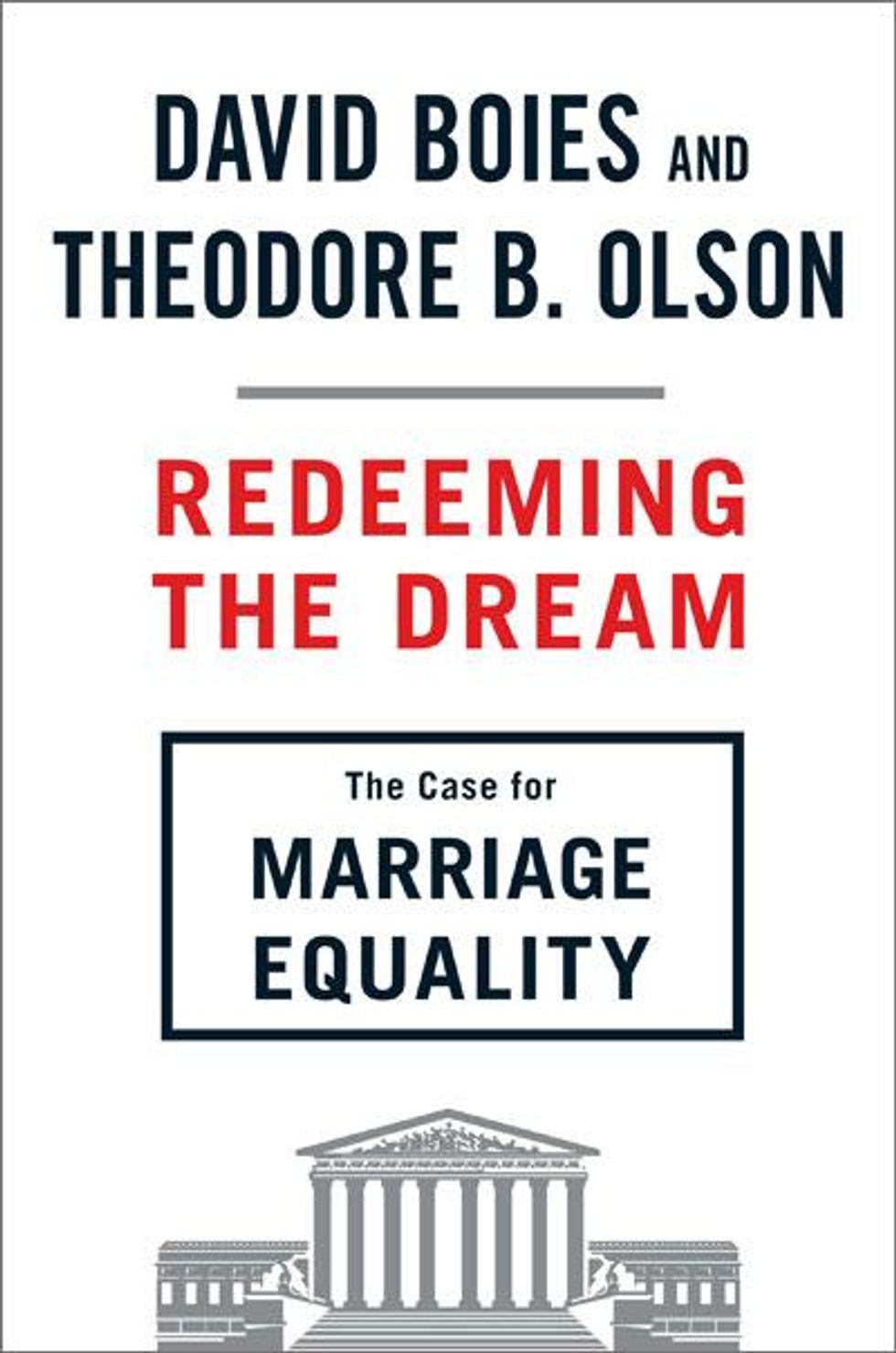
As the lunch wound down, Michele Reiner looked up from the table to see a familiar face. A talented event coordinator and fund-raiser, Kate Moulene was a professional "connector" whose work included linking the rich, famous, and powerful to important and worthy causes. A brilliant networker, she knew more prominent and successful people on a first-name basis than most people meet in a lifetime. Like the Reiner lunch group, she had been opposed to Proposition 8 and was dismayed by the outcome of the voting. Kate stopped by the Reiners' table and chatted with the group about how best to proceed in opposing the measure. Listening to their concerns, she suggested someone who she thought might offer the best insight on the subject, a Washington lawyer named Ted Olson.
"He used to be my brother-in-law," explained Kate. "He and my sister divorced, but we all stayed friends. He's brilliant. He's approachable. And I think he'll help you."
Chad, Kristina, Michele, and Rob were flabbergasted. A passionate liberal with a long memory, Rob had come to view Ted Olson as "the devil" during Bush v. Gore. Rob had been a strong supporter of Al Gore, and had actually been in the vice president's residence the night of the Supreme Court decision. Also, as solicitor general, Ted had been one of the people responsible for policies that, Rob believed, had brought misery to so many Americans during the George W. Bush administration. Given that it was Bush who had backed an amendment to the U.S. Constitution that would have banned same-sex marriage across America, how, Rob wondered, could Ted Olson possibly be helpful in support of marriage equality?
Kate had expected Rob's response and explained that Ted was open-minded and, in her experience, had manifested an abiding concern for equality and fairness. He was sensitive to the rights of minorities and was outraged whenever he discovered that someone had been bullied. As Kate described Ted as "caring and compassionate," she remembered, without mentioning it, that when her mother was being treated for cancer, Ted had written to her every day. Returning to practical considerations, she pointed out that Ted's experience might just tip the balance at the Supreme Court, where the justices seemed evenly divided on many controversial issues. "Besides," added Kate, "if you are going to do this in the federal courts, I don't think there's anyone who has won more historic Supreme Court cases."
While Rob, who had been inspired by seeing his parents join the civil rights movement in the 1960s, had no intention of giving up on the marriage equality fight, he wasn't quite ready to consider recruiting someone like Ted Olson as an ally. Olson may have been smart and successful--heaven knows, he had prevailed in Bush v. Gore--but he was a political enemy. Michele, if anything, was even more stunned by the idea of joining forces with Olson for a challenge to Proposition 8. "Are you brain-dead?" Kate recalls her saying.
As she left the Polo Lounge and drove home, Kate thought she had made her point effectively but was convinced that she had failed to persuade her friends. In fact, they had been so unreceptive that she feared they had forgotten that she was on their side. Then her cell phone rang. It was Rob, and as she would recall it, he said something like, "I know you are not really stupid, so tell me again, why would Ted take this case?" She repeated her points about Ted's core values and added, "He can really make a good argument on anything. I recall from time to time asking him to explain some conservative position that I could not comprehend, and even though I'm like a Che Guevara liberal, he helped me actually appreciate why conservatives think the way they do on a lot of things."
Rob trusted Kate not only as a friend but as an ally and intermediary. His natural creativity kicked in, and he let himself imagine what might happen if Kate were right. In the role of champion of same-sex marriage, Ted would be a wonderful example of casting against type, and sometimes the unexpected worked quite effectively. "Okay," said Reiner. "We could take a shot." He said he would put Chad in charge of the outreach and send him to Washington to take Ted's temperature and evaluate his willingness, sincerity, and level of commitment.
An excerpt from Redeeming The Dream: The Case for Marriage Equality, published with permission by Penguin.





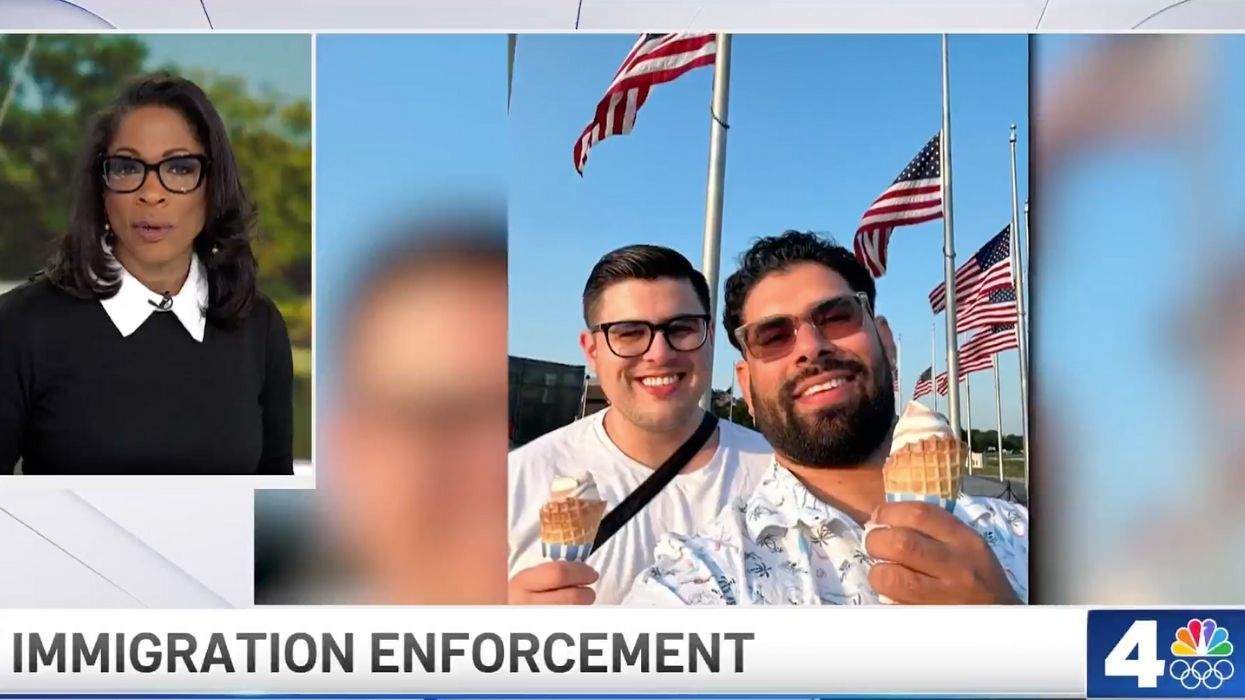
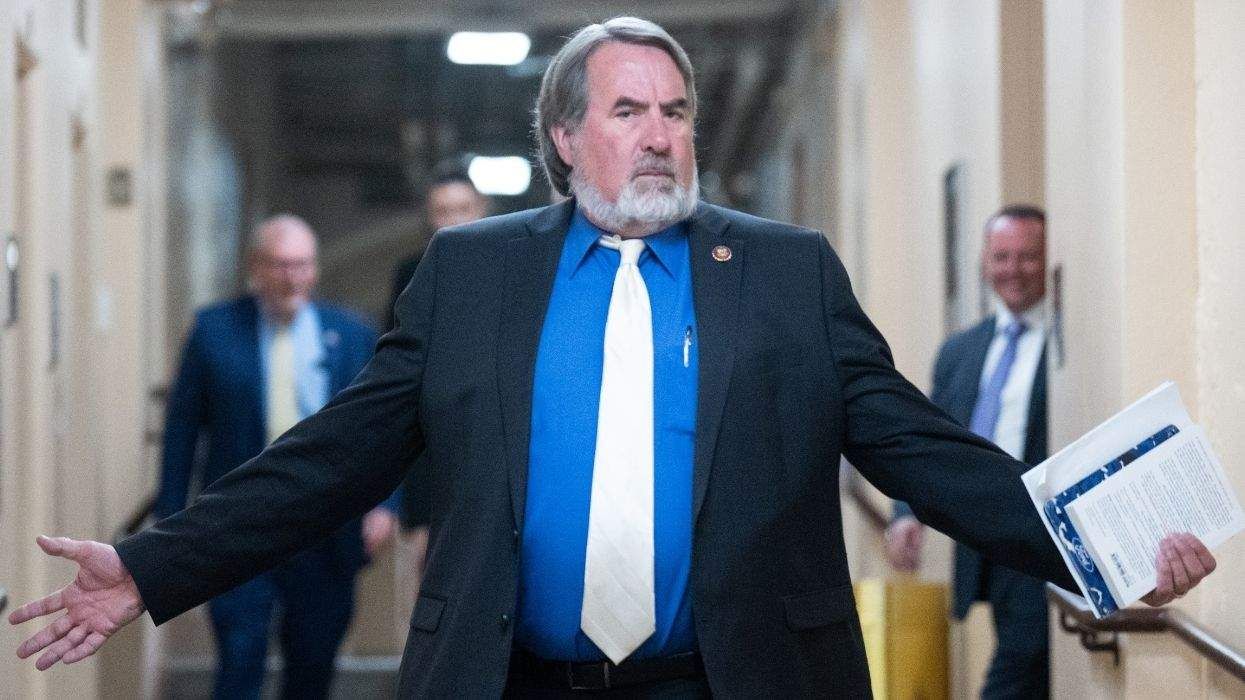

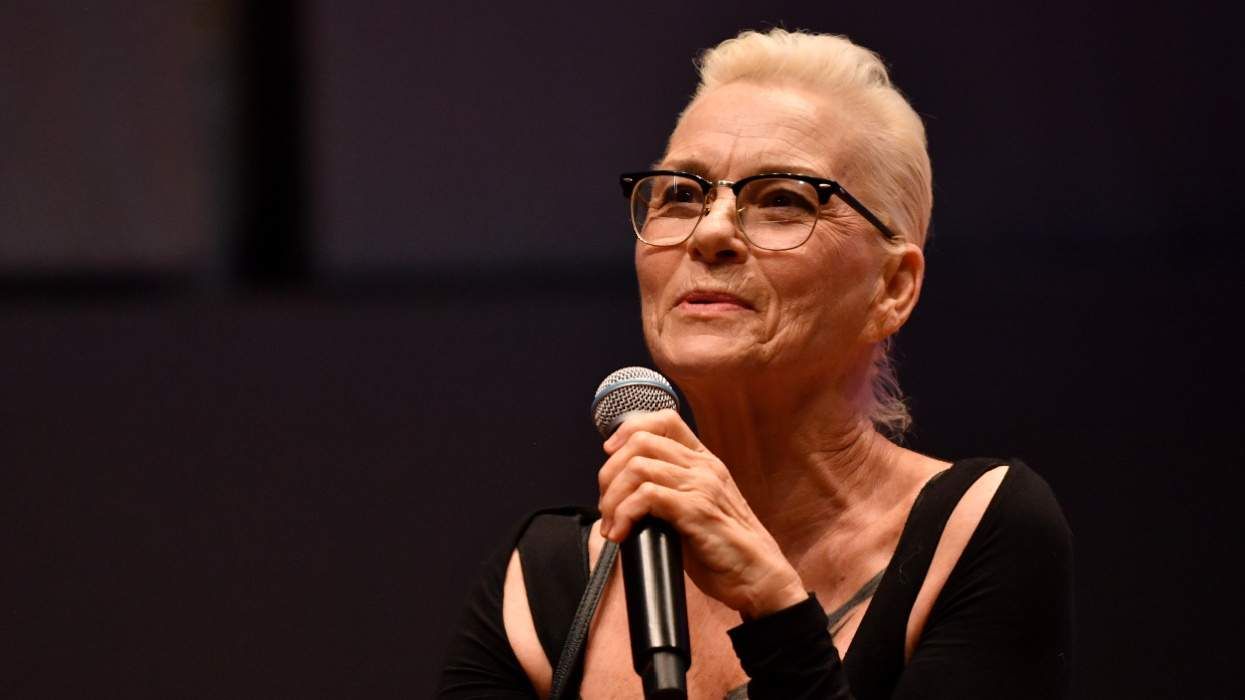
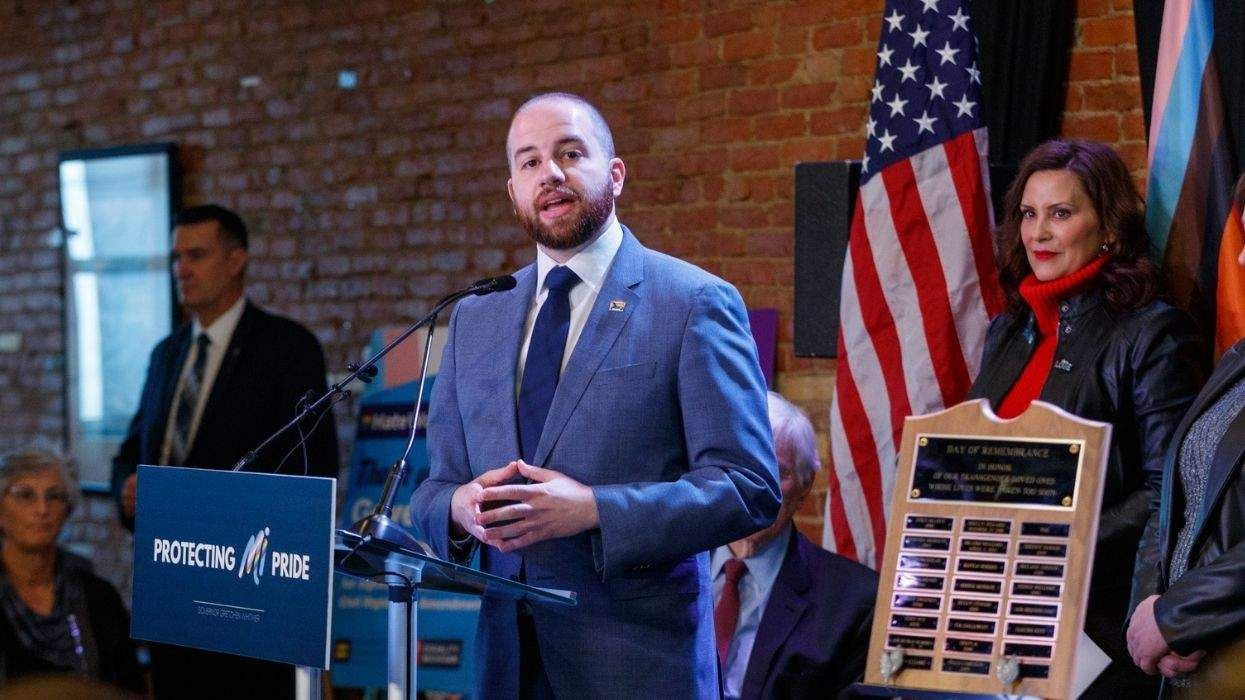





Charlie Kirk DID say stoning gay people was the 'perfect law' — and these other heinous quotes
These are some of his worst comments about LGBTQ+ people made by Charlie Kirk.